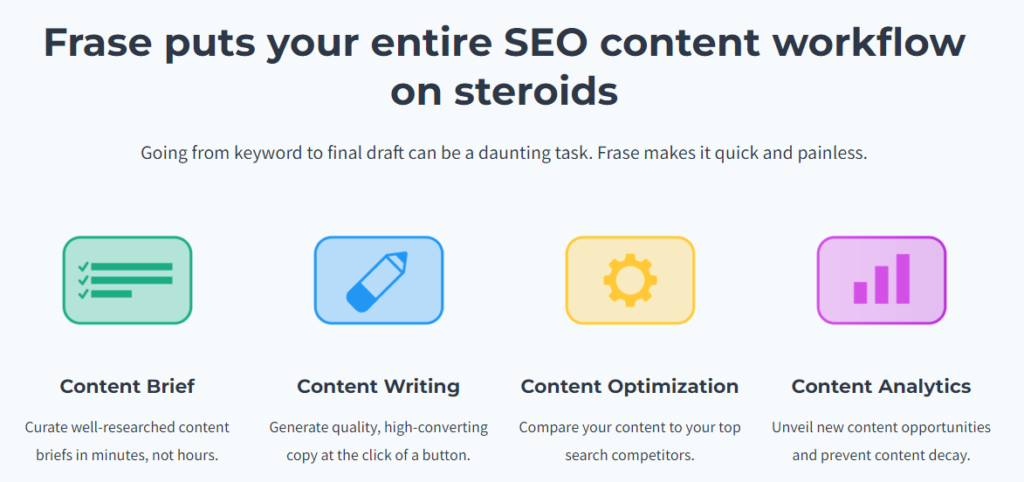What Is The Importance of SEO in Blogging
Importance of SEO in Blogging
Are you struggling to get traffic to your blog? If so, it might be time to optimize your content for SEO. In this article, we’ll explore the importance of SEO in blogging and provide tips on how to optimize your content to improve search engine ranking.
With tips on keyword research, on-page and off-page optimization, technical SEO, and more, this article is your guide to improving your blog’s visibility and driving more traffic.
When it comes to blogging, there’s no denying the power of search engine optimization (SEO). In fact, optimizing your blog content for search engines can make the difference between a thriving blog and one that struggles to get any traffic at all.
With so many blogs out there, it’s essential to ensure that your content is visible and easily accessible to your target audience.
In this article, we’ll explore the importance of SEO in blogging and provide tips on how to optimize your content for better search engine ranking.
So whether you’re a seasoned blogger or just starting out, read on to learn how to take your blog to the next stage.
Understanding SEO
Search engine optimization (SEO) is the practice of improving the visibility and ranking of a website or web page in search engine results pages (SERPs).
It involves optimizing various elements of a website or web page, such as its content, keywords, structure, and HTML code, to make it more attractive to search engines like Google, Bing, and Yahoo.

The importance of search engines in driving traffic to a blog
Search engines are one of the primary ways people discover and access websites and blogs on the internet. In fact, search engines are responsible for driving the majority of traffic to most websites, including blogs.
This means that if your blog isn’t optimized for search engines, you could be missing out on a significant amount of traffic and potential readers.
Factors that affect search engine ranking
Search engines use complex algorithms to determine the relevance and authority of a website or web page, which in turn affects its ranking in search results. Some of the most important factors that affect search engine ranking include:
Content quality: The quality and relevance of the content on a web page is one of the most important factors that search engines consider when ranking pages.
Keyword usage: Using relevant keywords in strategic places, such as in the page title, headings, and throughout the content, can help search engines understand what the page is about and improve its ranking.
Backlinks: The number and quality of other websites linking to a web page, also known as backlinks, can signal to search engines that the page is authoritative and valuable.
User experience: Factors like website speed, mobile-friendliness, and ease of navigation all contribute to the overall user experience, which can affect search engine ranking.
Technical factors: Technical aspects of a website, such as its HTML structure, meta tags, and schema markup, can also affect its search engine ranking.
You may increase your blog’s visibility and draw more readers from search engines by being aware of these criteria and tweaking your blog content properly.
Drag & Drop Sales Funnel Builder for WordPress
Understanding Keyword Research
Keyword research is an essential part of SEO, as it helps you identify the search terms that people are using to find content related to your blog topic. You can increase your chances of appearing higher in search engine results pages and receiving more organic visitors by including these keywords into the content of your blog.
How to conduct keyword research
There are several steps involved in conducting effective keyword research for your blog. These include:
Brainstorming: Start by brainstorming a list of potential keywords and phrases that are relevant to your blog topic. Think about what your target audience might be searching for and consider using tools like Google Trends to identify popular topics and search terms.
Analyzing competition: Use a tool like Google Keyword Planner or SEMrush to analyze the competition for each keyword on your list. Look for keywords with high search volume and low competition, as these are generally easier to rank for.
Refining your list: Refine your list of keywords based on search volume, competition, and relevance to your blog topic. Aim for a mix of short-tail and long-tail keywords, and try to include a variety of related terms and phrases.
Tools for keyword research
There are many tools available to help with keyword research, including:
Google Keyword Planner: This is a free tool from Google that provides keyword ideas and traffic estimates based on historical search data.
SEMrush: This is a paid tool that offers advanced keyword research and analysis features, including competitor analysis, keyword difficulty scores, and more.
Ahrefs: This is another popular paid tool for keyword research and analysis, with features like keyword difficulty scores, search volume data, and competitor analysis.
You may boost your search engine position and attract more organic visitors to your blog by completing thorough keyword research and including the relevant keywords into your blog content.

Types Of SEO
1. On-page Optimization
On-page optimization refers to the various elements of your blog post that can be optimized to improve its search engine ranking and user engagement. By optimizing your headlines, subheadings, content, and meta descriptions, you can improve your chances of ranking higher in search engine results pages and attracting more organic traffic to your blog.
How to optimize headlines and subheadings for SEO
Headlines and subheadings are important elements of your blog post that can influence its search engine ranking and user engagement.
To optimize your headlines and subheadings for SEO, you should:
- Include your primary keyword: Try to include your primary keyword in your headline and at least one of your subheadings.
- Use descriptive language: Use descriptive language that accurately reflects the content of your blog post, and that entices readers to click and read more.
- Use H1, H2, and H3 tags: Use the appropriate H1, H2, and H3 tags for your headlines and subheadings, as this can help search engines understand the structure of your content.
How to optimize content for readability and engagement
Optimizing your content for readability and engagement is another important aspect of on-page optimization.
To optimize your content for readability and engagement, you should:
- Use short paragraphs: Break your content up into short paragraphs that are easy to read and understand.
- Use bullet points and numbered lists: Use bullet points and numbered lists to make your content more scannable and easier to read.
- Use images and videos: Use images and videos to break up your content and make it more engaging for readers.
Importance of meta descriptions and meta tags
Meta descriptions and meta tags are important elements of on-page optimization that can help improve your click-through rate and user engagement. To optimize your meta descriptions and meta tags, you should:
- Use your primary keyword: Include your primary keyword in your meta description and meta tags, as this can help improve their relevance to search queries.
- Use descriptive language: Use descriptive language that accurately reflects the content of your blog post, and that entices readers to click and read more.
- Keep them short and sweet: Keep your meta descriptions and meta tags short and to the point, as this can help improve their visibility in search engine results pages.
Email Marketing Automation dedicated to WordPress, and you!
2. Off-page Optimization
Off-page optimization refers to the various elements of your blog post that can be optimized outside of your blog to improve its search engine ranking and user engagement. By optimizing your backlinks and social media presence, you can improve your chances of ranking higher in search engine results pages and attracting more organic traffic to your blog.
How to build backlinks to your blog
Backlinks are links to your blog from other websites, and they are an important factor in search engine ranking.
To build backlinks to your blog, you should:
- Create high-quality content: Create high-quality, engaging content that other websites will want to link to.
- Guest post on other blogs: Guest posting on other blogs can help you build backlinks and improve your online reputation.
- Reach out to other bloggers: Reach out to other bloggers in your niche and ask them to link to your blog.
Importance of social media in off-page optimization
Social media is another important factor in off-page optimization. By building a strong social media presence, you can improve your online reputation, attract more followers, and increase your chances of ranking higher in search engine results pages. To optimize your social media presence, you should:
- Choose the right platforms: Choose the social media platforms that are most relevant to your niche and audience.
- Post regularly: Post regular updates on your social media platforms to keep your followers engaged and informed.
- Engage with your followers: Engage with your followers by responding to their comments and messages, and by sharing their content on your social media platforms.
Importance of online reputation management
Online reputation management is the process of monitoring and managing your online reputation to ensure that it accurately reflects your brand and values.
You can identify and address negative reviews or comments, as well as promote positive feedback and reviews, by monitoring your online reputation. This can help you boost your internet reputation while also attracting more organic traffic to your blog.
Here’s the expanded outline for section VI:
3. Technical SEO
Technical SEO refers to the various technical aspects of your blog that can be optimized to improve its search engine ranking and user experience. You may boost your chances of ranking higher in search engine results pages and attracting more organic traffic to your blog by optimizing your website performance, mobile friendliness, and security.
How to optimize website speed and mobile responsiveness
Website speed and mobile responsiveness are two important factors in technical SEO. To optimize your website speed and mobile responsiveness, you should:
- Optimize your images: Optimize your images by compressing them and using appropriate file types.
- Minimize your code: Minimize your code by removing unnecessary characters and whitespace.
- Use a content delivery network (CDN): Use a CDN to distribute your content across multiple servers for faster loading times.
- Use a mobile-responsive design: Use a mobile-responsive design to ensure that your blog is accessible on all devices.
Help us build the future of email!

Importance of website security
Another key aspect of technical SEO is website security. You may boost your online reputation and safeguard your readers from malware and other security dangers by making your blog secure.
To optimize your website security, you should:
- Use HTTPS: Use HTTPS to encrypt your website traffic and protect your visitors’ data.
- Use strong passwords: Use strong passwords for your website and hosting accounts.
- Regularly update your software: Regularly update your website software and plugins to ensure that you are protected against known security vulnerabilities.
- Use a firewall: Use a firewall to protect your website from attacks and unauthorized access.
You may improve your website’s performance, security, and user experience by adopting these technical SEO best practices.
Measuring and Analyzing SEO
Measuring and analyzing your SEO performance is important to understand how your blog is performing in search engines and to identify areas for improvement. It allows you to see how your optimization efforts are impacting your blog’s search engine ranking and traffic.

How to use tools like Google Analytics to track SEO performance
Google Analytics is a free tool that allows you to track and analyze your website’s traffic and user behavior.
By using Google Analytics, you can track metrics such as page views, bounce rate, time on page, and more to see how your blog is performing in search engines.
You can also use Google Search Console to track your website’s search engine ranking and identify keywords that are driving traffic to your blog.
How to adjust and improve SEO based on data analysis
Once you have collected and analyzed your SEO data, you can use the insights to improve your optimization efforts. For example, if you notice that a particular keyword is driving a lot of traffic to your blog, you can create more content around that keyword to attract even more traffic.
You can also adjust your on-page optimization or off-page optimization strategies based on the data to improve your blog’s performance in search engines.
You can continuously enhance your SEO efforts and attract more traffic to your blog by measuring and analyzing your SEO results.

Conclusion
We’ve spoken about the importance of SEO in driving traffic to your blog and the various tactics you can take to optimize your content for search engines throughout this article.
You may increase your blog’s search engine rating and attract more readers by understanding and implementing these tactics.
It’s time to start optimizing your content for SEO if you haven’t already. Spend time conducting keyword research, optimizing your headlines and content for search engines, building backlinks, and tracking your SEO performance.
By using these tactics, you may increase the exposure of your blog and attract more visitors.
FAQs
- What is the best keyword density for SEO?
There is no one-size-fits-all answer to this question, as the ideal keyword density can vary depending on the length and topic of your blog post. As a general rule, aim for a keyword density of around 1-2%.
- How often should I publish new content to improve SEO?
There is no hard and fast rule for how often you should publish new content, as it can depend on the niche and competition of your blog. However, it is generally recommended to publish high-quality content on a consistent basis, whether that is once a week or once a month.
- Can I use the same keyword on multiple blog posts?
Yes, you can use the same keyword on multiple blog posts, but it’s important to ensure that each piece of content is unique and provides value to readers. Avoid keyword stuffing or creating duplicate content, as this can negatively impact your search engine ranking.
- Do I need to pay for SEO tools?
While there are many free SEO tools available, some paid tools can provide additional insights and features that can help improve your optimization efforts. However, it’s possible to do SEO without paid tools, especially if you’re just starting out.
- Is it possible to do SEO for free?
Yes, it is possible to do SEO for free by utilizing free tools and resources available online. However, it can take more time and effort to see results compared to using paid tools and services.









